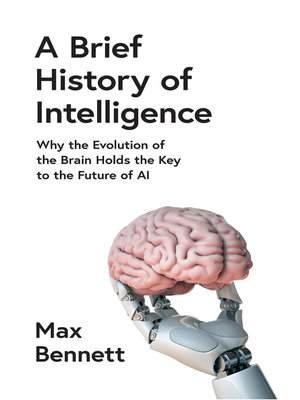A Brief History of Intelligence
ebook ∣ Why the Evolution of the Brain Holds the Key to the Future of AI
By Max Bennett

Sign up to save your library
With an OverDrive account, you can save your favorite libraries for at-a-glance information about availability. Find out more about OverDrive accounts.
Find this title in Libby, the library reading app by OverDrive.



Search for a digital library with this title
Title found at these libraries:
| Library Name | Distance |
|---|---|
| Loading... |
Bridges the gap between AI and neuroscience by telling the story of how the brain came to be. 'I found this book amazing' Daniel Kahneman, Winner of the Nobel Prize in Economics and bestselling author of Thinking Fast & Slow The entirety of the human brain's 4-billion-year story can be summarised as the culmination of five evolutionary breakthroughs, starting from the very first brains, all the way to the modern human brains. Each breakthrough emerged from new sets of brain modifications, and equipped animals with a new suite of intellectual faculties. These five breakthroughs are the organising map to this book, and they make up our itinerary for our adventure back in time. Each breakthrough also has fascinating corollaries to breakthroughs in AI. Indeed, there will be plenty of such surprises along the way. For instance: the innovation that enabled AI to beat humans in the game of Go – temporal difference reinforcement learning – was an innovation discovered by our fish ancestors over 500 million years ago. The solutions to many of the current mysteries in AI – such as 'common sense' – can be found in the tiny brain of a mouse. Where do emotions come from? Research suggests that they may have arisen simply as a solution to navigation in ancient worm brains. Unravelling this evolutionary story will reveal the hidden features of human intelligence and with them, just how your mind came to be.







